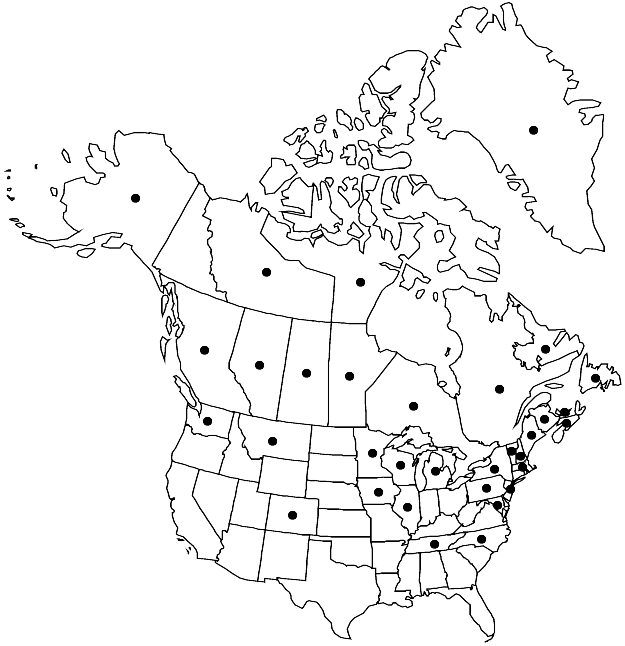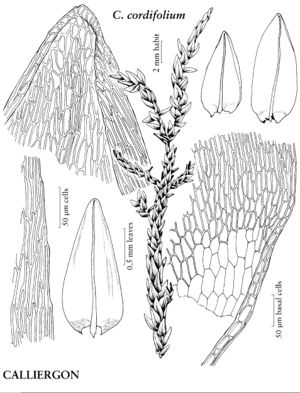Calliergon cordifolium
Canad. Rec. Sci. 6: 72. 1894.
Plants medium-sized to large, green, pale green, or sometimes brownish. Stems irregularly radially branched; axillary hair apical cell elongate-rectangular to short-linear. Stem-leaves ovate-cordate, triangular-ovate, or narrowly elongate-cordate; costa single, 54–117 (–133) µm wide near base, ending shortly before apex; alar regions indistinctly delimited, triangular, from margins to costa or nearly so; proximal laminal cells not markedly wider than distal cells; medial cells 34–139 × 7–13 (–14) µm. Sexual condition autoicous. Spores 13–20 µm.
Habitat: Moist or wet, ± nutrient-rich fens, shores, ditches, swampy forests
Elevation: low to high elevations
Distribution

Greenland, Alta., B.C., Man., N.B., Nfld. and Labr., N.W.T., N.S., Nunavut, Ont., P.E.I., Que., Sask., Alaska, Colo., Ill., Iowa, Maine, Md., Mass., Mich., Minn., Mont., N.H., N.J., N.Y., N.C., Pa., Tenn., Vt., Wash., Wis., Eurasia
Discussion
Calliergon cordifolium is most frequently confused with the dioicous C. giganteum when the latter species does not form its characteristic miniature sprucelike shoots. Both species have alar regions that reach or almost reach the costa, but whereas C. cordifolium has diffusely delimited groups and a stem leaf costa that is 54–117(–133) µm wide near its base, C. giganteum has sharply delimited alar cells and a costa that is (88–)95–282 µm wide. Calliergon cordifolium is never pale pink, like some expressions of C. giganteum; finally, C. cordifolium tends to grow in more nutrient-rich and slightly less mineral-rich habitats than the latter. For differences with 2. C. orbicularicordatum, see the discussion of that species.
Selected References
None.
